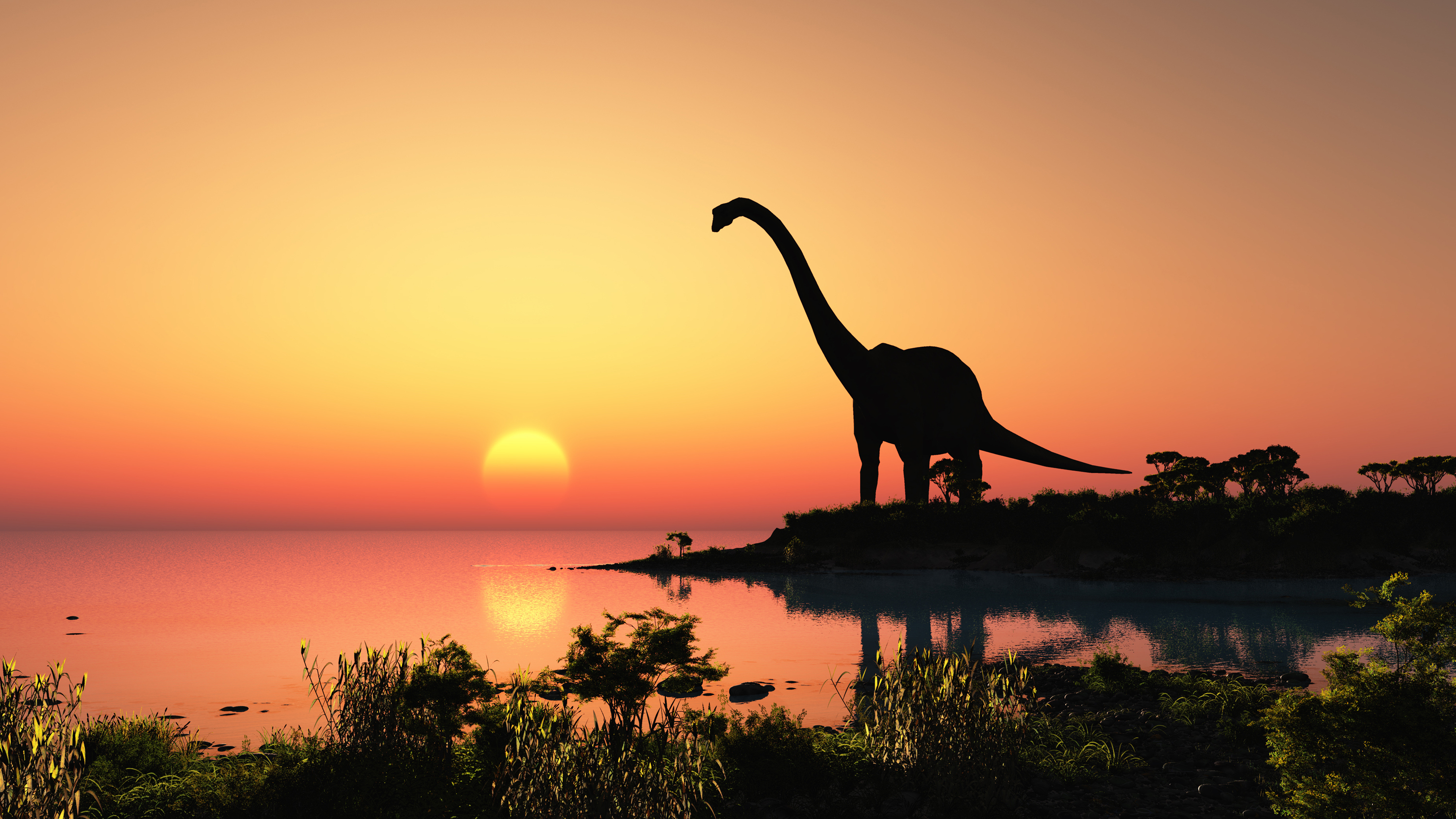When chance intervenes
The universe can be random. That's why you exist, and the dinosaurs don't.


A free daily email with the biggest news stories of the day – and the best features from TheWeek.com
You are now subscribed
Your newsletter sign-up was successful
This is the editor’s letter in the current issue of The Week magazine.
One pivotal day 66 million years ago, a 6-mile-wide asteroid slammed into the Earth off the Yucatán Peninsula in Mexico. The explosion — as powerful as millions of nuclear bombs — kicked up billions of tons of vaporized rock, filling the sky with a dark cloud that blotted out the sun for decades. Global temperatures plunged 50 degrees. The dinosaurs that dominated the planet died off for lack of food. Their disappearance led to the rise of mammals, and eventually to the evolution of Homo sapiens. In a new BBC documentary that aired this week, scientists who've drilled down into the asteroid’s crater say that it hit "in the worst possible place" — shallow coastal waters where the underlying sediments were filled with gypsum; if the big rock had entered the atmosphere just 30 seconds earlier or later, it would have landed in the deep Atlantic or Pacific Ocean and not created the catastrophic cloud of sulfur. Most dinosaurs would have survived. The human race might never have arisen.
So much is the product of chance: how people meet their spouses, which of our parents' genes we inherit, why this person and not that one gets cancer or dies in a terrorist attack. A cascade of unlikely events can decide a presidential election by 77,000 votes out of 136 million cast, sending history off in an uncharted direction. But the human mind finds randomness emotionally unsatisfying, even threatening. Could we really have so little control over the circumstances that shape our lives? We crave reasons for what happens. So we retroactively see patterns that render events inevitable, or attribute them to fate or divine will or just plain luck. The sages — and life experience — tell us that the truth lies somewhere in the middle: We don't control the cards we're dealt, but do get to use some skill, wisdom, and courage in playing them. But sometimes, stuff just happens. Flaming happenstance can fall out of a clear blue sky. Ask any apatosaurus.
The Week
Escape your echo chamber. Get the facts behind the news, plus analysis from multiple perspectives.

Sign up for The Week's Free Newsletters
From our morning news briefing to a weekly Good News Newsletter, get the best of The Week delivered directly to your inbox.
From our morning news briefing to a weekly Good News Newsletter, get the best of The Week delivered directly to your inbox.
A free daily email with the biggest news stories of the day – and the best features from TheWeek.com
William Falk is editor-in-chief of The Week, and has held that role since the magazine's first issue in 2001. He has previously been a reporter, columnist, and editor at the Gannett Westchester Newspapers and at Newsday, where he was part of two reporting teams that won Pulitzer Prizes.
-
 Political cartoons for February 14
Political cartoons for February 14Cartoons Saturday's political cartoons include a Valentine's grift, Hillary on the hook, and more
-
 Tourangelle-style pork with prunes recipe
Tourangelle-style pork with prunes recipeThe Week Recommends This traditional, rustic dish is a French classic
-
 The Epstein files: glimpses of a deeply disturbing world
The Epstein files: glimpses of a deeply disturbing worldIn the Spotlight Trove of released documents paint a picture of depravity and privilege in which men hold the cards, and women are powerless or peripheral
